Right after PDAC I returned to Lima, and the corona virus pandemic played a major role in my life. Supermarkets & pharmacies ran out of TP, alcohol, sanitizer gel, paper napkins, paper towels upon my arrival (March 5). Peru declared sanitary emergency on Wed March 11 and all public & private schools were closed. On March 12 all university classes suspended as well as gatherings of over 300 people (public offices & ministries closed, no public attention). March 13 all flights from Europe & Asia suspended, no landing allowed in Lima. On March 15 Peru declared national emergency and closure of all its borders (internal and international), all airports, ports & major roads were immediately closed, no one can land or leave the province or country in any way; the entire country is quarantine, meaning we can’t leave our homes. All establishments were closed: parks, beaches, theaters, restaurants, coffee places, no taxis-uber-or similar, public transit have been drastically minimized. Monday March 16 was transition day, meaning, one person per household could go to the “essential” places (banks, gas station, hospitals & pharmacies) to do what you needed to do, today I need to drive with a special permit from the police, and if I don’t have it with me, I will go to jail for 24-48 hours. Capacity of the open establishments has been minimized to avoid crowds, therefore the line-ups outside supermarkets are long to say the least, and space between people in the line should be 1.5-2mt. Police and military (with guns, masks and gloves) are in major intersections to stop all drivers and ask why you are out, and very kindly remind you to go back home right after you are done with your chores. Only essential business people can freely move (doctors, nurses, bank & gas station employees, food related industry so they can leave supplies at the supermarkets) In all this madness, I have been very impressed with my niece school, as all her classes were online as of Monday March 16 at 8am, and tomorrow she will have her first Zoom meeting with the teacher and school mates.
My dad takes multiple medications, my parents normally buy the meds he needs for a couple of weeks and have it delivered, there is no delivery service, online purchases not longer exist. I have been driving to multiple pharmacies trying to get the meds he needs. Not all pharmacies are linked so they can’t check inventory. I have been stopped over 10 times during those 3 hours drives by police and military. Last night we started a curfew 8pm-5am, meaning the “essential” establishments must closed by 4pm to allow people sufficient time to return home, many have to walk 4 hours to get home, as they don’t have a car and there are very-very limited number of buses and transit routes open.
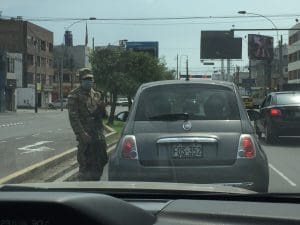
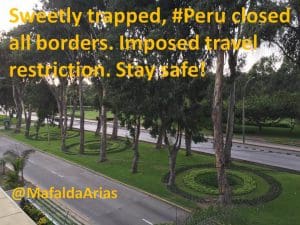
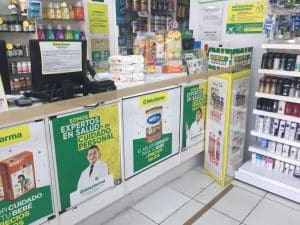
Peru is beginning phase 3 of the pandemic (234 infected, 19 in hospital & 7 in ICU), I believe the closure of borders and existing conditions will be extended beyond the initial 2 weeks. Employers can’t lay-off people on payroll (labour stability law in Peru) and must pay employees regardless if they can come to work or not, have remote access to work or not, this is the labor law and no changes have been made or announced yet. Small business may not survive with no sales, and I doubt Peru will have the financial resources to aid small business with a relief package. This is economic suicide for entrepreneurs.
I have lived through dictatorial military regimes and terrorism during my formative years in Peru. I know what is to have no freedom of movement or speech. I have lived with no water/electricity/limited food and supplies during these years, and I am acutely aware of my privilege during those times and now, but this situation is different, it’s health driven and touches humanity at its core. I am resilient, incredible positive, calm during very stressful times, and most importantly, I am grateful to be sweetly trapped in Lima with my parents (87 & 82) through this unique time, and perhaps a new normal for a while.
If you work as a social practitioner, and want to have an intercultural approach to your work during #COVID-19, try the following 7 Questions
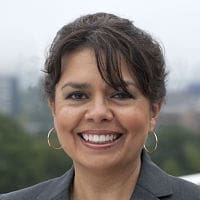
Written By Mafalda Arias, Mafalda Arias and Associates & GroYourBiz Member Vancouver
Mafalda Arias, M.A., is the President and Founder of Mafalda Arias and Associates, an organization that coaches organizations and individuals to interact, communicate and manage differences effectively. The company’s innovative training programs help build trust, reduce misunderstandings, leverage diversity and introduce collective empowerment through culture.



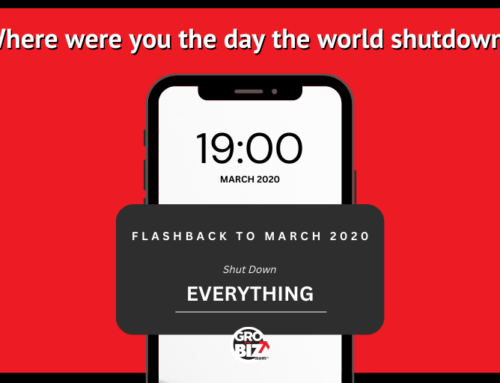
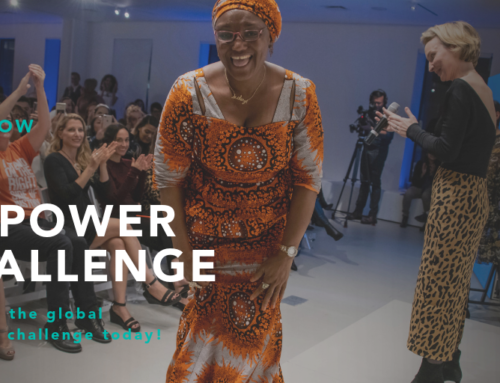
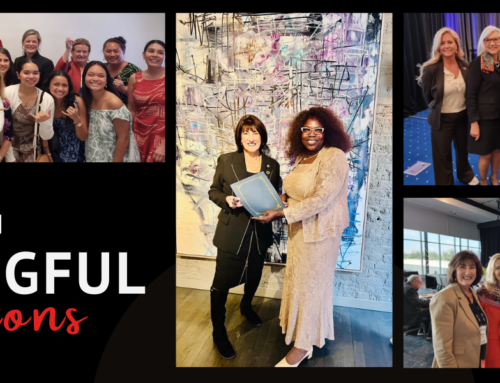
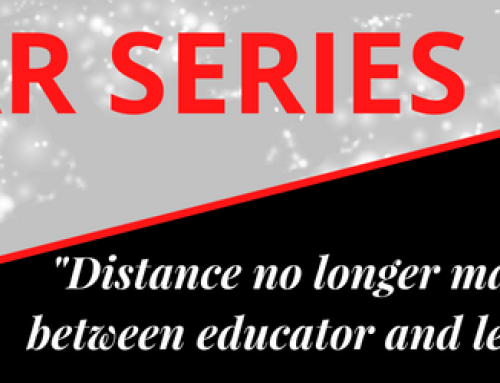
Leave A Comment